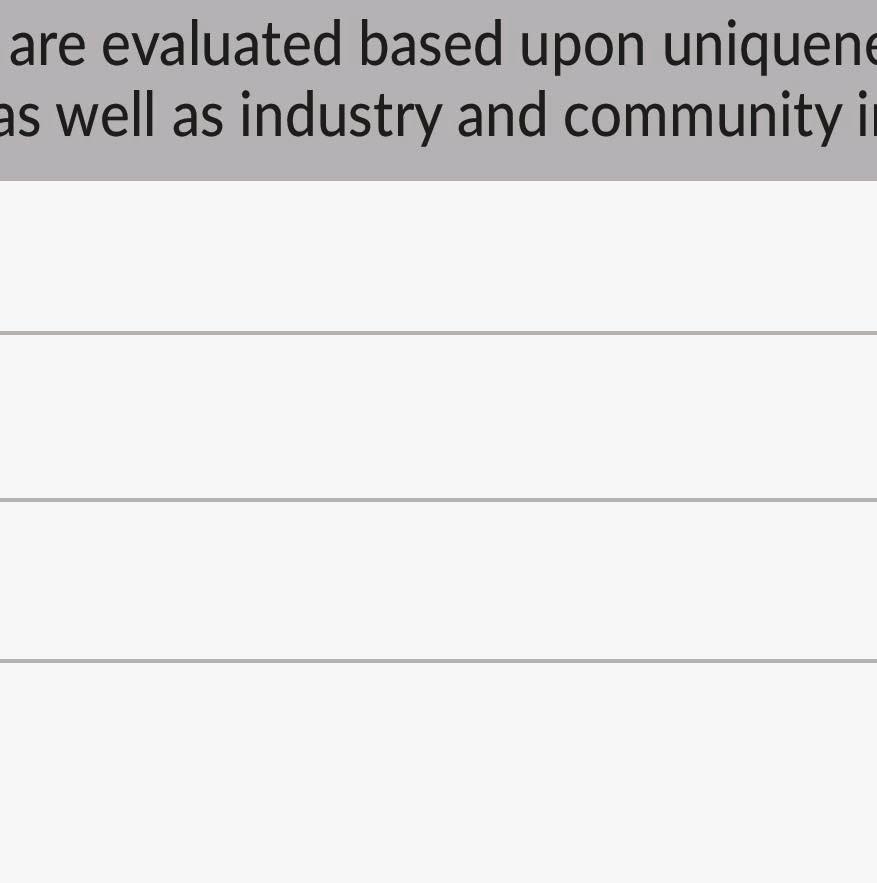MY CRYSTAL BALL:
You CAN Predict You’ll Be Successful Selling Real Estate

HOW TO NOT LOSE A CLIENT In Ten Days
THERE GOES THE NEIGHBORHOOD: How to List High When Neighbors Are a Nuisance Why Delegating is the Key to LONG-LASTING SUCCESS

MY CRYSTAL BALL:
You CAN Predict You’ll Be Successful Selling Real Estate

HOW TO NOT LOSE A CLIENT In Ten Days
THERE GOES THE NEIGHBORHOOD: How to List High When Neighbors Are a Nuisance Why Delegating is the Key to LONG-LASTING SUCCESS




Carla Cross, CRB, MA
Grab
plan you can find and start the plan. Find someone to coach you to the plan.
From my survey of hundreds of agents under three months in the business, I found that more than 1/2 of them expected a sale the first month of the business. What does that mean? When do they have to start looking for leads? That first week in the business! Yet, how many new agents start lead generating even in the first month? How long have you been in the business?
When did you start lead generating on purpose? Or, have you started? That’s why my book, Up and Running in 30 Days, now in its 6th edition, has you lead generating in week one. It’s your assurance plan you will get a sale fast and will stay in the business.
Inevitably, there is a new agent who has an Aunt Martha in his back pocket. That is, Aunt Martha wants to buy a home, and has told nephew Tommy she’ll wait until he gets his license to purchase from him. Ca-ching. Dumb luck. Tommy concludes that’s how the business goes. You just wait for someone to find you and
sell them a home. We know that’s not the norm, though.
Unfortunately, Tommy’s going to wait a long time for that next transaction! The ‘dumb luck’ approach to the business results in low results. Since the ‘dumb luck’ agent isn’t doing a business start-up plan, we have no way of predicting results, because we can’t measure businessproducing activities. We can only measure other ‘dumb luck’ agent incomes. That’s way too late to actively coach–or to terminate with purpose.
Your Manager Could be a ‘Dumb Luck’ Manager–Pardon the Expression…
Dumb luck managers just look at results; sales and listings sold. So, they are not aware that agents may be failing for months. If new agents expect to make a sale in month one, how many months do you think it takes for them to get dis enheartened? 2-3? Not long. So, once new agents are mentally and emotionally out of the business, they will resist any help from managers. They’ve decided they can’t make it in the business. They’ll stay awhile, though, for ‘dumb luck’ transactions.

Are you working a specific, prioritized lead generating plan? Is it made up of prioritized lead generating activities? Does it have ratios of activities to results, so the new agent knows whether he is on track to his goals?
Here are my activity ratios from Up and Running that will result in 8-12 transactions the first year in the business:
• 20 contacts to get one buyer or seller lead
• 8 times of putting people in the car to sell someone a home
• 3 listing appointments to gain one marketable listing
https://carla-cross.com
• 80% of listings sell
• 80% of transactions close
What are the ratios in your office? Do you know? Do you know the work it takes to consistently generate the income you want to generate? Or, are you counting on ‘dumb luck’?
Grab the best business start-up plan you can find and start the plan. Find someone to coach you to the plan. Analyze your numbers frequently. You’ll stay on track AND assure your success.
In the real estate business for over 3 decades, Carla Cross is an international speaker, trainer, and coach for real estate. She specializes in career development, business planning, leadership, and instructor development. She’s won numerous sales and leadership awards in each area, including being named as a National Realtor Educator of the Year. A popular international speaker, Carla has spoken on leadership and training topics for 16 years at national Realtor conventions.
Author of eight books on real estate sales, her wildly popular book, Up and Running in 30 Days, is used by hundreds of thousands of new agents internationally to start their careers right.


Top Agent Scott Kumler services all of Maricopa County with The Kumler Group with My Home Group — which has blossomed into a fifty-two-agent network that is evenly split between the East and West Valleys of Maricopa County.
Scott Kumler of Buckeye, Arizona, combines his tireless work ethic with a penchant for leadership and a dedication to lifelong relationships to fuel his thriving real estate business. “I love helping people accomplish their goals for themselves and their families – that goes for my agents as well as my clients. Building equity, granting people freedom and flexibility, living
the lifestyle you’ve always wanted … I’m doing the same work now that I did as a solo agent, just with a broader impact!”
Before stepping into real estate, Scott worked as an assistant store manager for several different grocery stores in the Chicagoland area. “I was working fifty to sixty hours every week,” he recalls. “One
day I was driving home in negative five-degree weather after a ten-hour shift, and I got a flat tire. Two hours in the cold was enough to tip the scales – the next morning my wife and I got out a pad of paper and laid out a game plan.” Scott’s managerial expertise and diligent bookkeeping made
him an ideal candidate for the world of real estate, so the couple set their sights on the horizon and moved to Arizona.
In 2017, Scott became a fully licensed REALTOR® and began servicing all of Maricopa County. “I focused on being



“Whether they just needed a handyman or wanted to learn about solar panels, I wanted to be the guy who could chase down answers.” This disposition helps Scott maintain a book of business that is
presently one hundred percent repeat and referral based.
a lifelong resource for my clients,” he exudes. “Whether they just needed a handyman or wanted to learn about solar panels, I wanted to be the guy who could chase down answers.” This disposition helps Scott maintain a book of business that is presently one hundred percent
repeat and referral based, and his individual production hovers between six and twelve homes each year.
While he prides himself on helping his loyal clients, the majority of Scott’s time and energy is spent supporting
The Kumler Group with My Home Group. In two short years, the group has blossomed into a fifty-two-agent network that is evenly split between the East and West Valleys of Maricopa County. In their first calendar year, they cleared one hundred collective
transactions, and are on pace to double that figure by the end of 2024. “We’ve just hired two positions to keep up with expansion – a Director of Sales and a Director of Growth. The additional leadership structure will free me up to work with individual agents, coaching



and mentoring them. Seeing their success and being there for their wins is what I am most passionate about.”
When he’s not championing his team or bolstering his clients, Scott and his wife Cinnamon go to great lengths to support their extended community. Alongside their local church, the couple volunteers and sponsors a Barefoot Mile (which

For
raises funds to aid sex trafficking victims) and an annual Thanksgiving meal to feed hungry neighbors. As they broaden their professional and personal impact, Scott hopes to spread his knowledge and prosperity throughout the entire state. “It’s impossible to double your numbers every year, but that’s where it looks like we’re headed. We will keep that up for as long as we can!”

Troublesome neighbors are a relatively common issue that agents come across. You can control the image of your client’s property and you can control your listing presentation, but you can’t always control what’s happening on your client’s street. How do you diffuse difficult neighbors that could lower your bottom line or embarrass you in front of prospective buyers?
First of all, it takes tact and a gameplan. With that in mind, let’s consider a few ways you can maintain a listing’s viability and competitive edge—even when bothersome neighbors are involved. Here are a few common neighborly scenarios agents encounter and how to diffuse them to your advantage.
How do you diffuse difficult neighbors that could lower your bottom line or embarrass you in front of prospective buyers? It takes tact and a gameplan.

Is the neighbor’s landscaping an eyesore?
Here’s your recourse.
Most towns and cities have established ordinances regarding yard upkeep. If any of the properties adjacent to your listing are wildly overgrown, littered with junk, or otherwise in a state of obvious disrepair—take it up with the city. Rather than get directly involved at first glance, you might loop in city officials whose job it is to monitor clean-up efforts on rundown yards and properties. If this doesn’t work, you may have to take a more hands-on approach. Start by thinking small and operating from a place of authenticity and neighborly service. You might explain to the neighboring tenant that you’re listing and offer to mow their lawn
as a courtesy introduction to the neighborhood. While it may seem like needless busy work, it can dramatically improve prospective buyers’ perceptions of the area. Plus, you may positively ingratiate yourself with neighbors in the area and demonstrate your above-and-beyond service to your clientele in the process.

It may take a little research and digging to figure out the banking entity that owns a foreclosed home, but it’s well worth the effort. Banks are typically required to maintain foreclosed homes on at least a basic level. If you’re worried about
squatters, an unsightly façade, or general disrepair of a neighboring foreclosed property—go to the source. Sometimes banks take their time in hiring a third party to maintain a foreclosed property, but with some proactive prodding on your part, you may be able to speed the process along and resolve eyesores even before prospective buyers come calling. Remember: the squeaky wheel gets the grease. An improved bottom line will be your reward for those few prodding phone calls and emails.

Don’t be discouraged.
Obnoxious neighbors can really rain on a seller’s parade, especially the kind of neighbor
that takes their less-than-stellar behavior to their porch, front yard, or sidewalk. While this sensitive issue may seem daunting, there are a few official channels you can utilize to thwart the issue before getting personally involved. If the neighborhood in question is governed by an HOA, you might take it up with them. If the troublesome neighbor is harassing passersby or taking to the sidewalk—in other words, public space—then you may be able to involve local authorities in worst-case scenarios. Of course, it’s always possible to talk to troublesome neighbors faceto-face, but do so with caution and with safety as the priority. Always reason gently and empathetically, utilizing I... phrasing, instead of accusatory You... phrasing. After all, some neighbors are clueless about their impact on the neighborhood and may adjust their behavior after being called out. If the issue persists and no third-party authority can help, then you may have to disclose the neighbor’s issues to prospective buyers, depending on the disclosure laws in your region. While this may seem like a blow, you can at least rest easy knowing you pursued all the potential avenues for resolution available. Likewise, your client will likely appreciate your thorough efforts to resolve the issue.
While troublesome neighborhoods can bring down an optimistic mood when listing a property, sometimes being real estate is all about being resourceful. With diligence, digging, and a little follow-up, you just may be able to resolve some of the issues plaguing your neighborly plot.

Delegating isn’t a dirty word. In fact, it’s the secret weapon of some of the most successful real estate leaders out there. Those that want to succeed and lead a business built to last understand that delegating is the key to growth and longevity. While the idea of delegating may sound nice, consider a few ways in which delegating adds professional value that goes far beyond efficiency.
Have you ever considered that delegating tasks and responsibilities can help you, as a leader, develop your managerial skills? While the main objective of delegation is to distribute work in a balanced, efficient way, it’s also a chance to assign tasks with insight, calibrating your team in the process. Consider delegation an opportunity to build strengths and address weaknesses on your team by choosing specific tasks for specific employees. You can also work on and expand your communication skills, find ways to streamline your delegation tactics, and create opportunities for collaboration. Don’t just delegate blindly, be thoughtful in how you parcel out the workload and responsibilities. Doing so will allow you to fortify your
While the idea of delegating may sound nice, consider a few ways in which delegating adds professional value that goes far beyond efficiency.
management skills, in addition to lightening your load for the better.
Another byproduct of delegating is that it builds collective confidence in the ranks of your office. By giving employees the chance to flex their skills and control their own small slice of the pie, you’ll be fostering a sense of responsibility and growth on your talent roster. Not only will your staff benefit from the chance to step out on their own, but the team will also benefit as a whole, as each member will attack their duties with a renewed sense of confidence and competence. This collective aptitude will translate to clients and industry colleagues, who will sense the power of a practiced, well-calibrated team in which each member has the chance to shine.
Proper delegation requires clear communication and the careful outlining of responsibilities, goals, and expectations. By regularly delegating to staff, you’ll be giving the whole office the chance to curtail careless communication habits and establish a new benchmark for quality correspondence. Begin by setting an example by clearly communicating delegated responsibilities, leaving the door open for
questions, and by making progress reports the standard. After a while, these good habits will become engrained in your team, and your office will benefit from a uniform and effective communication style, no matter the project.
The ultimate goal of delegating duties is to get the job done, but when you practice delegation, each team member will have a stake in the outcome. In other words, a job well done can be celebrated by all. Giving your team the chance to invest themselves in an overarching project allows for a big pay-off once success is achieved. Not only does this boost morale and provide meaningful motivation for daily work, but it also builds a sense of comradery among the ranks. What’s more, team members will know they’re taken seriously and considered valuable to the team’s dynamic. And don’t forget: a job well done is a reward in and of itself, but it also doesn’t hurt to demonstrate your gratitude for a team goal accomplished.
Delegating responsibilities isn’t a new idea, but the benefits are more plentiful than most imagine. With that in mind, capitalize on opportunities to delegate and you’ll not only be bolstering your business, but building your team and your own professional profile for the long haul.

















While we won’t be serenading a Carly Simon song or tugging on the heartstrings of a Hollywood heartthrob, we will be sharing ten essential tips for agents, the key pitfalls to avoid and the most common mistakes agents make that can cost them
a client. Whether you are a new agent or seasoned veteran in today’s market, get ready for ten insights from Top Agent Magazine. Sit down, grab your popcorn, and tune in to “How To Not Lose a Client in 10 Days!”
Agents who make it in real estate care about their clients’ welfare while guiding them through the homebuying journey.
Something we hear time and time again from agents featured in Top Agent Magazine is that their business and relationship with a client is not just about the transaction but more about devotion to serving their clients. Suppose a client suspects you are only eager for a quick commission versus their welfare; they may move on to a new agent who puts their welfare ahead of a transaction. Agents who make it in real estate care about their clients’ welfare while guiding them through the homebuying journey. If an agent is more transaction-focused than client-centric, this is a sure way to lose a client.
Never gloss over issues with a property. Be transparent with your client as you disclose everything you know about a property to protect the interest of a client and their family. When an agent openly communicates with their clients, whether a structural issue or faulty plumbing in the home, it prepares them
to understand the magnitude of what home repairs need addressing before purchasing. If an agent conceals property issues for their client to discover later, they may lose future business.
Failing to respond to your client may cause severe frustration. Your clients will have questions—point blank. The client relies on their agent as their voice of reason to distribute facts, relay progress, handle disruptions in the home buying process, and close the deal as seamlessly as possible. In a way, as an agent, you pledge to take on the stress. When you leave your clients without answers, they may not feel like a priority to you. Promptly return those phone calls and emails!
Agents must do their homework on a property to avoid losing potential customers and leads. Picture this - It’s an open house flooded with
potential clients, but you struggle to answer questions regarding the property accurately. Your potential client will be running for the hills! Conduct thorough research on the home and property, plunging into every detail from the construction date of the home to the specifics of the flooring. When your clients ask about the home, land, and local community, they expect you to inform them properly. Keep your leads impressed while you share your knowledgeable expertise about your listings so they feel secure in their home purchase.
Marketing properties sufficiently is critical for generating new leads and sales. Top agents effectively market their listings through email marketing, social media, print advertising, drone photography, and professional staging. For example, TV Personality from Selling Sunset and one of Southern California’s most well-known luxury real estate brokers featured on Top Agent Magazine’s cover, Jason Oppenheim from the Oppenheim Group, shares,

“We focus on the presentation of a property beforehand, and we even have a concierge service that can help get the home ready for sale. We really like to have a property looking as new as possible before we photograph and get them to market, so that often means staging, painting, landscaping, and sometimes a light remodel.” Implement Jason’s advice by employing
effective marketing strategies to have plenty of leads and prevent losing potential clients.
Lacking confidence in negotiation can give the impression that an agent needs a grip on the sale. Successful agents who know how to negotiate home prices find reward by keeping clients long-term while serving their clients’ best interests. A client will expect their agent to handle the negotiation aspects of the home buying process to give them the most favorable outcome. Poor negotiation skills can look like rushing, passivity, and lack of decision-making ability. On the other hand, a confident negotiator will have patience, assertion, and the ability to make decisions by articulating a client’s boundaries when discussing the closing price. You could miss out on future business or a five-star review if you don’t bring your A-game for your client.
Ignoring client feedback will result in client frustration and pose a significant risk of losing repeat and referral business. Constructive criticism from clients can be a guiding light to where an agent needs improvement in how they do business and, in the long term, may help refine an agent’s skills. Which agent doesn’t want to be the best version of themselves? Take advantage of your client’s advice to leverage it as an opportunity for career growth.
It is paramount that an agent is educated about present market trends and informed about the local real estate market.
Overpromising and under delivering is an easy way to taint your image and name in the business of real estate. To uphold your reputation among clients and industry peers, it’s crucial to fulfill the expectations you’ve committed to meeting. An agent should strive to be realistic when working with their client to avoid false hope or unrealistic results in the buying and selling process. Furthermore, it helps everyone prepare emotionally for potential obstacles in the homebuying process.
Putting pressure on your clients to make a decision when purchasing or selling their home is a big no-no. Not only is a home one of the most significant purchases most individuals make over their lifetime, but it is also where most spend the rest of their lives. For a client, these decisions can be challenging as they determine what their future home will look like. While guiding your client is valuable, it’s important to allow them to go at their own pace. Patience is a virtue, and professionalism is essential for a happy client.
It is paramount that an agent is educated about present market trends and informed about the local real estate market. Should an agent not prove they are up-to-date with the latest market knowledge, they risk looking unprofessional and unfit to represent a client. By knowing the state of the market, you become a proficient representative for your client. Additionally, you stay properly educated and may earn respect in the industry for your knowledge. Learning things like year-to-year home values, current interest rates, and home inventory stock, as well as the best time to list or purchase a home, will demonstrate to your clients that they are in good hands with an agent who holds vast knowledge of the real estate world.
In the competitive world of real estate, the success of your business relies on your clients’ loyalty and the prestige of your reputation. By implementing these rules into practice, you can avoid future challenges as you flourish in your business and cultivate enduring relationships with your clients for years to come.
